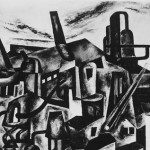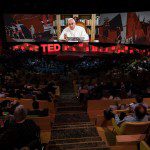We need to distinguish totalitarian or “real-existing” socialism, of which the Church will have no part, with democratic socialism, as John Paul II did in Centisimus Annus. We should note that then-Cardinal Ratzinger describes the closeness of democratic socialism with Catholic social thought in Without Roots (pg. 72). Again, there has to be a distinction between the totalitarian models and the non-totalitarian ones, otherwise we may not understand what is said when the Bishops of France wrote, “By condemning the actions of communist parties, the Church does not support the capitalist regime,” (see Anne Fremantle’s The Social Teachings of the Church, 1963.)
While the Catholic bishops of Peru in 1971 insisted, “Christians ought to opt for socialism”, we should wonder if a swap of systems needs to take place. Francis doesn’t say use this or that system, but suggests we change our lives, work according to various principles, and try for something better. I’ll close with considering what one possible set of principles may look like. It should not be surprising that these principles, produced before Laudato si’, are also written by a Latin American thinker and liberation philosopher, Enrique Dussel.
To begin, Enrique Dussel’s study of capitalism finds that the same economic system is unable to comply with the first principle of social activity, that is, of safeguarding life in perpetuity, humans in particular and the life of all creation in general. Consistent with Laudato, these principles manifest a love for the poor that includes their participation, as well as a respect for the rest of the created material universe. The conditions of this general principle, applied economically, can be expressed as follows: a) the rate in which we use renewable resources should not exceed the rate in which they are replaced; b) the rate in which we use non-renewable resources should not go beyond the rate in which new sources of energy are implemented – solar energy gets special mention for Dussel and in Laudato; and c) the rate of environmental contamination and industrial waste should not go beyond the possible rate of recycling and reversing previous negative effects, including global warming and its causes. One wonders whether Francis got these principles from Dussel!
Dussel offers three principles for a pro-life economy beyond capitalism in his 16 Theses of Political Economy, as yet untranslated into English:
-
We must, as it is our right and duty, produce, distribute, exchange and consume, in the economic realm, products of human labor, making use of the economic institutions of a system created to this effect, always maintaining and ultimately aimed at affirming and growing the quality of human life of all members of the community, and ultimately of the whole of humanity, according to the demands of the status of necessities and ecological resources determined by the human history of the time in which we live.
-
A decision made in the new productive model is legitimate (whether technological, productive, organizational, or having to do with advertising, etc.), even within the context of policy decisions related to the economic field, when those affected (workers, employees, etc.) can participate in a symmetrical fashion in the process of making practical decisions on all institutional levels (of production, distribution, exchange, etc.), guaranteeing such participation by means of social or community ownership of the means of production, maintained discursively (though specialists in different fields, techniques, or practices exercised in the productive community may have a greater weight to their reasons), taking into account necessities of every kind, not only of the productive community, but especially of, and as a service to and in responsibility for, society as a whole, and ultimately of all of humanity, within the limits framed by the principle of feasibility (principle 3) and of affirmation of human life as a common good (principle 1).
-
Do what is possible! Because, attempting the impossible is a chimera (a mythical illusion), and failing to attempt what is possible is conservatism or cowardice.
(Pardon any confusion from the quick translation, you can look at the original text here.)
Dussel and Francis both agree, as was mentioned earlier, that a swap of systems is not the appropriate proposal. Instead, let us be aware of the damages done, and which continue to be materialized, in the current, capitalist, economic order, change our lives and act according to principles that respect life.












